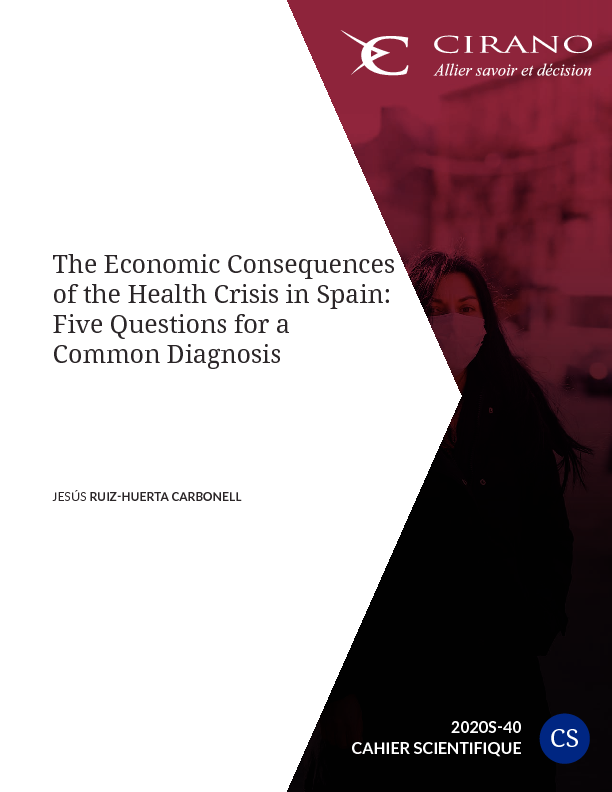The Economic Consequences of the Health Crisis in Spain: Five Questions for a Common Diagnosis
In a context of uncertainty regarding the intensity and the duration of the “coronavirus crisis”, the aim of this paper is to offer a picture of how the Spanish economy has coped in these crucial times. The paper is structured by attempting to answer five main questions. The first one refers to the impact of the health crisis on the real economy after a long and harsh lockdown that affected most of the Spanish population. Besides a serious drop of GDP, we look at the differential effects of the halt in the economic activity on the main sectors that characterize the country’s economy. A second section looks at how the halt in production has caused an intense growth of social problems. The already high unemployment figures that existed before the crisis have increased as a lot of firms have been forced to stop their activity, increasing inequality and poverty ratios in the country. The third question looks at the financial perspective of the crisis, stressing the need to maintain liquidity and resources, which has become an essential strategic variable that must be supported by the governing institutions of the monetary system, especially the European Central Bank. In this context, government intervention and the maintenance of the Welfare State became key actors in achieving a quick and effective response to the economic and social crisis, thus why the fourth section is dedicated to the main regulatory and fiscal policies applied by the Government and state institutions. Finally, we dedicate the last section to presenting some considerations related to the macroeconomic effects of the COVID-19 crisis in the European context and the main policies proposed by the European institutions.
The Spanish version is available on the website of the Fundación Alternativas




